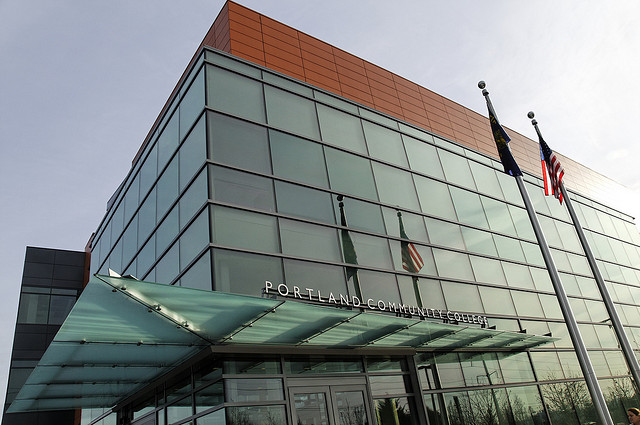‘Whiteness Awareness Month’ at PCC
January 23, 2016
When historian Carter G. Woodson deemed the second week of February “Negro History Week” in 1926, he emphasized its importance by saying, “If a race has no history, if it has no worthwhile tradition, it becomes a negligible factor in the thought of the world and it stands in danger of being exterminated.”
It’s in this spirit that every February, schools across the nation teach students about the plight of African Americans while celebrating society’s most influential people of color during Black History Month.
This April, Portland Community College [PCC] will aim to preserve the history of another race–caucasians–when they host Whiteness History Month.
Unlike other heritage months however, the tone of Whiteness History Month will be far from celebratory.
According to PCC’s Cascade Campus Diversity Council, the month-long academic project is intended to explore the origin of racism while studying the social construction of ‘whiteness’.
PCC’s website defines ‘whiteness’ as “an ideology based on beliefs, values, behaviors, habits and attitudes, which result in the unequal distribution of power and privilege based on skin color.”
During Whiteness History Month, PCC’s four campuses will host speeches, discussion sessions, and other events for its 90,000 enrolled students. According to KRON4, lessons from the initiative will also be integrated into the classrooms.
Student members of diversity clubs at Central were supportive of PCC’s decision to host Whiteness History Month, but said they would be hesitant about implementing a similar idea on campus in Ellensburg.
“I don’t think Central is ready for that,” said Gianni Glover, member of Central’s Black Student Union. “But I hope it does serve it’s purpose as far as educating, and getting people to see that this is a real thing and black people aren’t just saying stuff to be mad.”
La’shawnda Mason, diversity programmer at Central’s Center of Diversity and Social Justice agreed.
“Just from the backlash we got from our [Black Lives Matter] protest, we know the type of people we’re around,” said Mason. “I don’t think our staff is ready for something like that, they need training.”
Critics of PCC’s decision feel that the program will be nothing more than a month of “white shaming” if it ignores the positive contributions caucasians have made throughout history.
Evelyn Briscoe, Program Coordinator at the Center for Diversity and Social Justice, feels that PCC’s program will benefit caucasian students by showing them the advantages they have over students of color.
“I think it’s a good thing that they’re doing it because it’ll open people’s eyes to where their privilege came from,” said Briscoe. “Most people are kind of just brought up to believe they have this privilege, but giving them the history behind it can probably change the lens on how they see things around them.”
While diversity education is becoming more common on college campuses, many students feel that the public school system needs to overhaul the way it addresses issues of race.
Mason thinks that the way Black History Month is taught makes kids feel like the struggles of colored people are contained in the past.
“That’s the big problem, they really do teach it that way, like slavery was such a long time ago,” Mason said. “They’ve desensitized things of the past, but the past is still relevant today. I may not be a slave in physical chains, but there are still things like the prison system.”
Keeping Carter G. Woodson’s vision in mind, Armando Ortiz, President of Brother 2 Brother, wants to influence children by teaching the histories and traditions behind all heritages.
“As a future public school educator, that’s exactly why I want to go into education, to teach real history and to talk about real social issues,” Ortiz said. “The best way to oppress people is to take away their history and their culture, it completely disembodies them from their ethnicity.”

